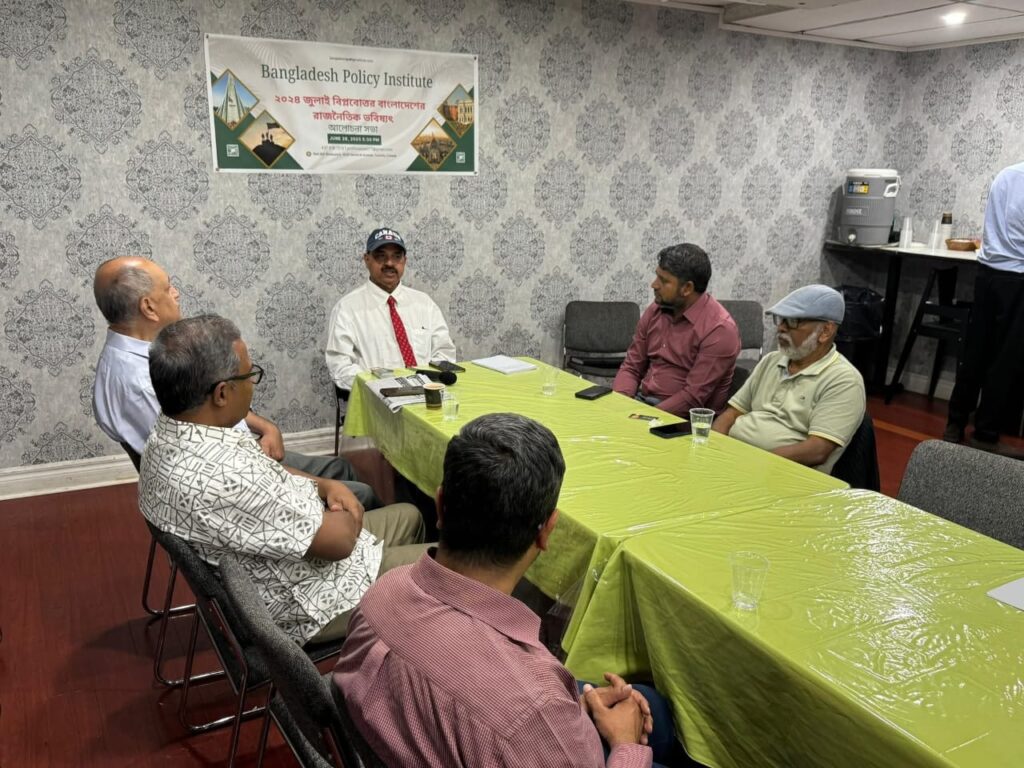On the follow-up seminar titled “The Political Future of Post-July 2024 Bangladesh” was held at Red Hot Restaurant, Danforth, Toronto, organized by the Bangladesh Policy Institute.
Moderated by Shamsul Muqtadir – Chairman of the Bangladesh Policy Institute, discussed key issues surrounding recent political developments, also he proposed 5 Article points to include July Charter –

Article 1:
The July 2024 Movement in Bangladesh was launched in resistance to a repressive and exploitative regime that acted against the public interest. The movement successfully removed the top figures of the authoritarian ruling class from power and expelled them from the country. However, due to the long-standing corruption of national political parties and the misleading framework of the existing constitution, the oppressive governance structure remains largely intact. Therefore, the interim government, established through the movement and formally constituted on August 8, 2024, shall remain in power until a national referendum is held in favor of proposed reforms to the constitution and the prevailing oppressive governance structure.
Article 2:
Justice must be served for all those injured and martyred during the July 2024 Movement. Additionally, the crimes committed by authoritarian regimes and their accomplices between 2009 and 2024 must be prosecuted. Justice must also be delivered for the brutal killings of members of the Bangladesh Armed Forces in February 2009, and all these legal processes must be concluded before the next national parliamentary election.
Article 3:
To strengthen the democratic framework and to prevent the people from being exploited as tools of oppression by the ruling elite, civic and global citizenship education must be introduced comprehensively at the secondary and higher secondary levels. Furthermore, by 2030, at least 20% of all youth aged 18 to 30 must undergo military training to build a capable and aware citizenry.
Article 4:
Approximately 10% of Bangladesh’s population resides abroad as expatriates. Their hard-earned foreign remittances are a vital pillar of the national economy. All expatriate citizens shall have the right to vote and will be eligible to contest in any election in Bangladesh. The state shall actively engage distinguished expatriates to promote the nation’s interests and advance Bangladesh’s strategic objectives in international diplomacy.
Article 5:
The Bengali language, literature, culture, sports, technology, and arts form the foundational identity and strength of Bangladesh. The interim government formed through the July 2024 Movement will take firm and specific initiatives to globalize Bengali language and culture. Bengali language, culture, and the arts shall be utilized as instruments of diplomacy and commerce, and investments will be made for their timely and progressive development.